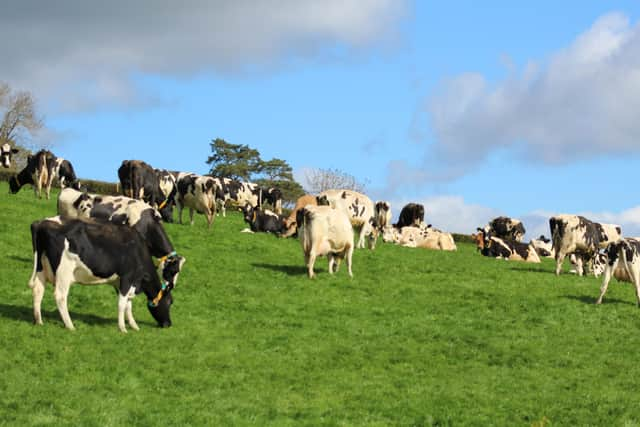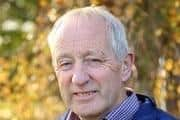Grassland changes
and live on Freeview channel 276
All around us we see changes and new ways of doing things.
This has been accelerated by the pandemic and more recently the war in Ukraine, which has contributed to very significant increases in the cost of living that affects us all.
A couple of years ago ‘virtual’ meetings were unheard of by most of us, but these are now very common. We can take part in all types of auctions from the comfort of our living rooms and buy livestock and equipment online. Changes to everything abound!


Advertisement
Advertisement
We have also been forced to accept many changes in the way that we farm, driven by huge rises in the ‘three Fs’: Fuel, Fertiliser and Feed. In the future, we will have to scrutinise every aspect of our farming practices, and change many of our routine procedures, so that we develop sustainable methods that reduce the impact upon the environment.
The importance of grass as a feed for ruminant livestock is likely to increase as imported grain becomes more expensive and as more sustainable farming methods develop. Thankfully, in much of Northern Ireland, we have perfect conditions to produce high yields of quality grass, which will give us a competitive advantage.
Consequently, the grass seed supply industry will also have to offer new mixtures to meet these changes with increased use of herbs, which increase sward mineral content and clovers, which improve sward protein content in grazing and silage swards. Clovers also have the ability to convert atmospheric nitrogen into a form that can be used for plant growth, thereby reducing the need for artificial fertilisers.
And while perennial ryegrass remains the predominant component in seeds mixtures for grazing and silage, there is already some interest in alternative grasses. For example, cocksfoot and tall fescue are very deep rooting, which gives them an advantage over ryegrass in terms of drought resistance. These species can also accumulate nutrients from a greater depth, although their lower palatability and digestibility will require a different management strategy.


Advertisement
Advertisement
In life, when all is changing around us, it is good to have someone to rely upon. In the very last book of the Old Testament the Prophet Malachi conveys what the Lord is saying to His people. We read, “‘I the Lord do not change’” (Malachi 3:6). Sadly, while many in our society have drifted away from God, the good news we hear in the next verse is this, “‘…return to me, and I will return to you’”. What a difference that would make for our country if we did return to Him!
Writing in the New Testament, we can also read how James, the brother of the Lord Jesus Christ, reminded members of the first century church that “every good and perfect gift is from above, coming down from the father of the heavenly lights, who does not change” (James 1:17).
Maybe you haven’t yet had the experience of a personal relationship with the Lord Jesus, or had that assurance of having your sins forgiven and the tremendous promise of everlasting life that He offers? In these days of economic uncertainty, political upheaval and change, why don’t you come to the one who never changes – Jesus? The one who is, as we are told, “…the same yesterday, today and forever” (Hebrews 13:8).
David is married to Pauline and they have four grown up children. Since retiring from the Grass Breeding Department at AFBI Loughgall, he grows Bramley apples, which he supplies to local processors and packers. David is a member of Loughgall Presbyterian Church.
Advertisement
Advertisement
If you would like to talk to someone about any of the issues raised in this article, please email Rev Kenny Hanna, PCI’s Rural Chaplain at [email protected] or call him on 07938 488 372.